The Inter Parliamentary Union, a global organisation of over 160 parliaments, will meet in Geneva in March 2014 at which it will consider a ground-breaking draft resolution “Towards a Nuclear-Weapon-Free World: The Contribution of Parliaments.”
Parliamentarians have a vital role to take action in their own parliaments to prohibit nuclear weapons, and re-allocate the vast sums of money on nuclear weapons and other weapons towards environmental protection, and meeting UN Millennium Development Goals.Saber Chowdhury, President IPU Standing Commission on Peace and International Security
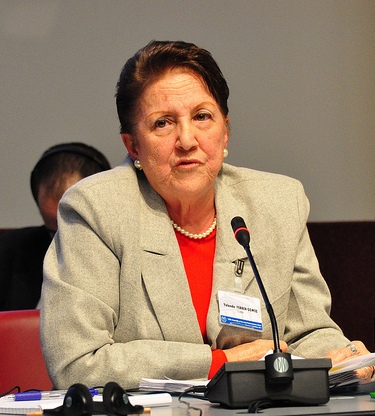
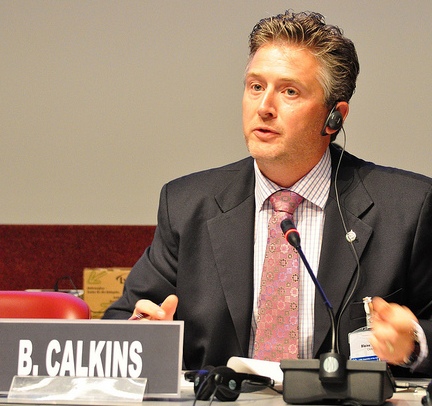
Co-rapporteurs Yolande Ferrer Gómez MP (Cuba) and Blaine Calkins P (Canada) speaking at the 129th IPU Assembly session on Toward a Nuclear-Weapon-Free World
The resolution has been drafted by co-Rapporteurs Blaine Calkins (a member of parliament from Canada) and Yolande Ferrer Gómez (a member of parliament from Cuba) following nearly a year of discussion sessions and informal consultations on the topic.
Approximately 1000 parliamentarians from the IPU member parliaments, meeting at the 128th IPU Assembly in Quito, Ecuador from Mar 22-27, 2013, agreed to choose nuclear disarmament as the principal issue for the IPU Standing Committee on Peace and International Security to address for the year until March 2014.
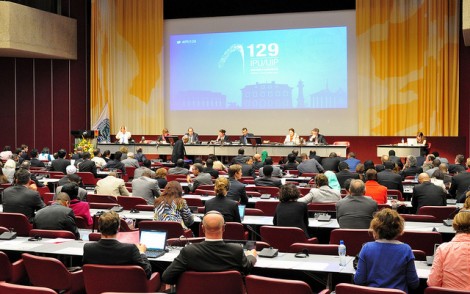
129th IPU session on Toward a Nuclear-Weapon-Free World: The Contribution of Parliaments
A special session of the Standing Committee at the 129th IPU Assembly in October 2013 heard from disarmament experts and from over 40 parliaments with suggestions and comments for the resolution.
The resulting draft resolution:
- Affirms the key role of parliaments and parliamentarians in addressing nuclear risks and building the legislative and political framework to achieve a nuclear-weapon-free world;
- Notes with grave concern that there are more than 17,000 nuclear weapons existing worldwide, constituting a serious challenge to international peace and security, and that any use of nuclear weapons, whether by accident, miscalculation or intent, would have devastating humanitarian and environmental consequences; and
- Highlights recent initiatives such as the United Nations Secretary-General’s five-point proposal for nuclear disarmament, the UN Open Ended Working Group on Nuclear Disarmament and the High-Level Meeting of the United Nations General Assembly on Nuclear Disarmament, held on 26 September 2013.
It then calls on parliaments to take action to strengthen existing nuclear non-proliferation and disarmament agreements (including the NPT, CTBT and the Convention on the Suppression of Acts of Nuclear Terrorism), and to commence negotiations on additional agreements including a ban on fissile materials and a nuclear weapons convention or package of agreements to achieve a nuclear-weapon-free world, as outlined in the United Nations Secretary-General’s five point proposal and noted in the 2010 NPT Review Conference Action Plan.
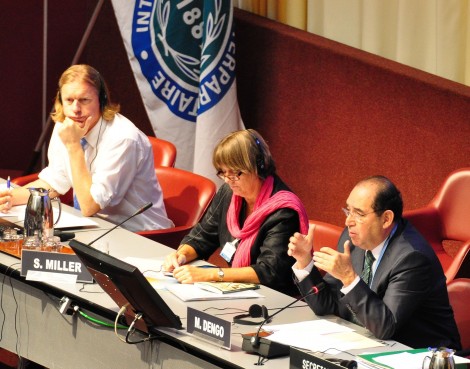
Costa Rica Ambassador Manuel Dengo, PNND Co-President Sue Miller and PNND Global Coordinator Alyn Ware speaking at the 129th IPU session on Toward a Nuclear-Weapon-Free World: The Contribution of Parliaments
The IPU membership includes parliaments of non-nuclear States, nuclear-armed States and States under nuclear deterrence doctrines, making the IPU a virtual ‘United Nations’ of parliaments, and a very effective forum for building practical, feasible cooperative approaches to resolving this important issue for humanity.
‘Parliamentarians have a vital role to support multilateral initiatives, such as the UN Secretary-General’s Five Point Plan for Nuclear Disarmament, and to take action in their own parliaments to prohibit nuclear weapons, and re-allocate the vast sums of money on nuclear weapons and other weapons towards environmental protection, and meeting UN Millennium Development Goals,’ says Saber Chowdhury, President of the IPU Standing Commission on Peace and International Security.
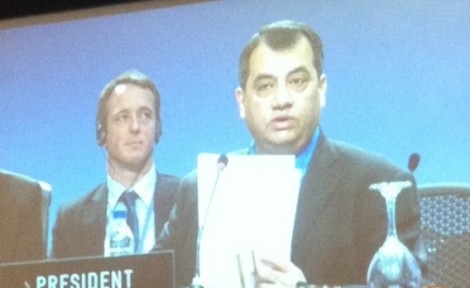
Saber Chowdhury, PNND Co-President and Chair of the IPU Standing Commission on Peace and International Security, announcing the topic for 2014 of "Towards a Nuclear-Weapons-Free World: The Contribution of Parliaments"
Chowdhury, who also serves as the Co-President for Parliamentarians for Nuclear Non-Proliferation and Disarmament (PNND), has personally introduced legislation into his own parliament in Bangladesh to not only prohibit nuclear weapons nationally, but also to place liability on the use of nuclear weapons by any neighbouring countries – noting that the ‘catastrophic consequences of any use of nuclear weapons could not be contained in time or space.’
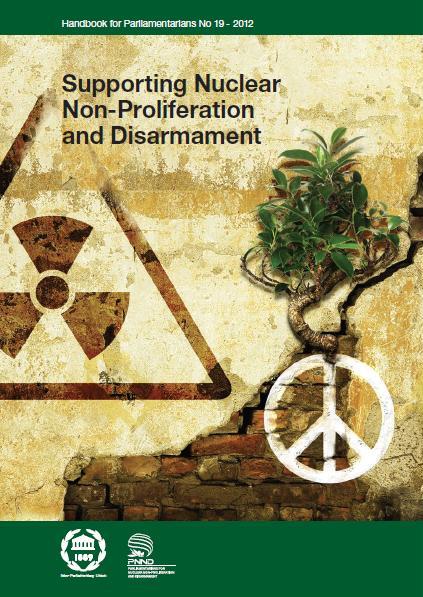
IPU recently released a Handbook for Parliamentarians on Supporting Nuclear Non-proliferation and Disarmament, co-edited by PNND, which includes a range of examples of legislative measures that have been taken in the parliaments of non-nuclear States, nuclear-weapon-States and allied States to reduce or prohibit nuclear weapons and pave the way for a nuclear weapon free world.
PNND will also be promoting the draft IPU resolution at its Assembly in Washington D.C. Feb 25-27, and will be hosting an event at the IPU Assembly in Geneva, following the adoption of the resolution, to assist parliamentarians and parliaments in its implementation.
